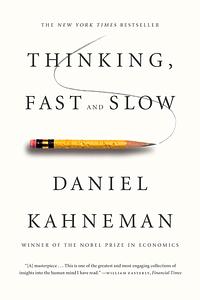You need to sign in or sign up before continuing.
Take a photo of a barcode or cover
I hate nonfiction this was so so boring I felt like my eubrain was being fried this is so bad i hate it it hate it i hate it
____
Pretty nice and very enlightening. That was just my inner monologue in the dead of night. What a terrible slog to get through—not really the writer’s fault though. I just hate nonfiction! So yeah, if you hate nonfiction, grab your brain cells and run.
____
Pretty nice and very enlightening. That was just my inner monologue in the dead of night. What a terrible slog to get through—not really the writer’s fault though. I just hate nonfiction! So yeah, if you hate nonfiction, grab your brain cells and run.
challenging
informative
reflective
slow-paced
challenging
informative
reflective
slow-paced
The first 2/3ds are a solid 5; the final third of the book is a bore and a chore, dragging it down considerably. Still, lots of great insights here.
It took me a long time to get through this book. It contains some information that I found quite interesting, some that I'd have considered common sense and some that the author considered common sense and for which he therefore didn't bother collecting data (which really threw me off). Reading Steven Pinker's Rationality at the same time as this book makes it clear that a lot of its findings are outdated or have proven non-replicable. The book did, however, spark my interest in thinking processes and the many biases our minds are subjected to. So I'd still recommend it to anyone interested in the topic, just maybe don't stop there.
informative
medium-paced
Wonderfully insightful. It has uncharacteristically taken me months to finish this book. Yet, looking at it lying at my bedside table consistently gave me a feeling of anticipation for reading the rest, despite week after week of having to dust it and move it around to accommodate the other books coming in and being read. Now that it's my Christmas holiday, I had the time and brain power to get back into it, reading the second half in two days.
Kahneman uses many stories of his long academic life to outline how we interpret the world around us through two systems. Our first line of attack, being intuitive, fast and often wrong us our 'System 1'. The more conscious and rational 'System 2' takes over when it gets complicated or there is not enough input or associations available to process the situation without active thinking. The implications are manifold and explain a lot about our (ir) rationality and decision making processes, where we can't help but be misguided and what some of the biases are that we should look out for. With its solid scientific underpinnings and clear explanations a tremendously good read.
It was a drag at times though, with repetition filling too many pages with examples of the same principles or even literally repeating statements and explanations. It felt like the various parts and chapters might have been written by different people, not aware that things had already been covered elsewhere.
But that was the only negative of the book, taking the fifth star away, but not diminishing the overall value of it to me.
Kahneman uses many stories of his long academic life to outline how we interpret the world around us through two systems. Our first line of attack, being intuitive, fast and often wrong us our 'System 1'. The more conscious and rational 'System 2' takes over when it gets complicated or there is not enough input or associations available to process the situation without active thinking. The implications are manifold and explain a lot about our (ir) rationality and decision making processes, where we can't help but be misguided and what some of the biases are that we should look out for. With its solid scientific underpinnings and clear explanations a tremendously good read.
It was a drag at times though, with repetition filling too many pages with examples of the same principles or even literally repeating statements and explanations. It felt like the various parts and chapters might have been written by different people, not aware that things had already been covered elsewhere.
But that was the only negative of the book, taking the fifth star away, but not diminishing the overall value of it to me.
Changed the way I think - a little faster in some places and a little slower in others. This book universally applies.
informative
medium-paced
Difficult read but superb. Needs to be re read to grasp fully
slow-paced
*loooong sigh* This book was painful for me to get through. It took me over a month to finish giving me lots of time to THINK (slowly, never fast). Perhaps it's because I discovered I have no interest in how we think, how it relates to economics, and how to interpret endless statistics and percentages. And I just can't DNF a book...so I struggled through 450 pages before the last 50 pages were just citations/references (note: subtract 50 pages from total pages read in annual total). It was one of those books where I couldn't remember whether or not I had already read the paragraph. It put me asleep too many times to count (no exaggeration). I am happy it's over because this was just not the book for me.
informative
inspiring
reflective
medium-paced




